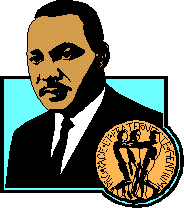The Bible and the Quran are just fiction, yet look how many billions of lives they've changed. Other collections of words that have had a profound influence include the Magna Carta, the Declaration of Independence, the US Constitution, Adam Smith's The Wealth of Nations, Karl Marx's Das Kapital, Uncle Tom's Cabin, Adolf Hitler's Mein Kampf, John Maynard Keynes's economic theories, FDR's fireside chats, the UN's Universal Declaration of Human Rights, Ayn Rand's Fountainhead, and Martin Luther King Jr.'s "I Have a Dream" speech. Is anyone seriously going to claim that sticks and stones may break our bones, but words have no power whatsoever? Given the evidence in front of your face, what's the basis for this claim?
You can apply this to other forms of media--movies, TV shows, cartoons, video games, plays, songs, etc.--as well. Much of the culture we absorb comes from narratives such as stories and lessons. From The Hare and the Tortoise to The Cat in the Hat, practically everything has a message.
The message may be that greed and sloth are bad. Or that preparation and sharing are good. It also may be that stereotyping is acceptable or unacceptable. People, especially children, will absorb one lesson as readily as another. All these lessons are attempts to educate and enlighten in fictional contexts.
For more on the subject, see Okay to Stereotype in "Satires"? and Educating Russ About Criticism.


No comments:
Post a Comment